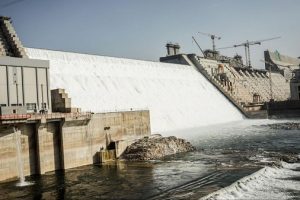
In a move that underscores its unwavering commitment to national security and economic prosperity, Ethiopia is intensifying its diplomatic efforts to secure guaranteed access to the Red Sea and Gulf of Aden. This critical and permanent national priority, viewed as vital for the nation’s long-term stability and regional integration, was the central theme of the recently concluded 3rd Red Sea and Gulf of Aden Dialogue held in Addis Ababa. The high-level conference convened a diverse array of officials, experts, and policymakers, signaling Ethiopia’s proactive stance in navigating the complex geopolitical landscape of the region.
Hosted by the influential Institute of Foreign Affairs (IFA), the dialogue, aptly titled “Navigating Gulf-Horn Economic and Security Cooperation: Opportunities, Challenges, and Future Directions,” served as a crucial platform for in-depth discussions on the intricate economic and security nexus between the Gulf states and the Horn of Africa (HoA). The gathering not only underscored Ethiopia’s determination to address its landlocked status but also its resolve to foster greater regional stability through cooperative mechanisms, highlighting a new era of proactive diplomacy.
Ambassador Fitsum Arega, Director General of Diaspora Affairs at the Ministry of Foreign Affairs, delivered a powerful and unequivocal address, emphasizing the enduring nature of Ethiopia’s maritime aspirations. “Ethiopia’s pursuit of guaranteed maritime access is not a passing concern. It is a permanent national imperative driven by the vision of security, economic viability, and regional integration,” he stated, articulating the profound and transformative impact this access would have on the nation’s future trajectory.
Ambassador Fitsum further elaborated on the historical context of Ethiopia’s vulnerability, noting, “For too long, Ethiopia has been excluded from the Red Sea security arrangements and forced to rely on limited transit routes. This vulnerability has only deepened as some regional states pursue destabilizing policies.” His poignant remarks underscored the strategic imperative for Ethiopia to establish its own secure and reliable access to international waters, moving decisively beyond a historical dependence on neighboring ports and asserting its rightful place in regional maritime affairs.
Echoing the strategic significance of the region, Jafar Bedru, Director of the Institute of Foreign Affairs, emphasized the profound geopolitical and economic importance of the Red Sea and Gulf of Aden. He highlighted their pivotal role in connecting East African nations through vital trade routes and shared strategic interests. “This corridor facilitates regional commerce, cultural exchanges, and economic integration, reinforcing the shared prosperity of surrounding nations,” he said.
Ethiopia aims to secure maritime access to strengthen regional peace, advance economic partnerships, and enhance global diplomatic relations, he noted. “The ongoing dialogue seeks practical solutions to regional challenges surrounding Red Sea access and cooperation.”
Ethiopia maintains that it has a legitimate right to access the Red Sea and the Gulf of Aden and is pursuing diplomatic measures to achieve this goal, Jafar emphasized.
Ethiopia’s steadfast commitment to achieving maritime access through principles of mutual respect, transparency, and regional cooperation was strongly reiterated by Lt. Gen. Yimer Mokonnen.
He affirmed Ethiopia’s desire to be an active and reliable partner in regional endeavors, stating, “Ethiopia seeks not just assistance but to be a reliable contributor to peace, security, and development across the region.” This powerful statement signals Ethiopia’s readiness to actively contribute to, rather than merely benefit from, regional security and economic frameworks, positioning itself as a constructive force for stability.
The dialogue’s overarching aim was to explore the multifaceted opportunities, daunting challenges, and future directions for economic and security collaboration across the Gulf and Horn regions. Ethiopia, as a key player, unequivocally pledged its commitment to working collaboratively with its neighbors to ensure both its maritime sovereignty and shared regional prosperity. This collaborative approach is seen as absolutely essential for long-term stability and sustainable growth across the Horn of Africa and the Gulf.
A dynamic and engaging discussion among panelists at the dialogue further underscored the critical role of political will among key power centers surrounding the Horn of Africa in shaping the future of Horn-Gulf economic and security cooperation. Experts stressed with conviction that genuine and lasting progress hinges irrevocably on the commitment of regional leaders to prioritize shared interests over individual gains, fostering an environment of trust and collective action.
The comprehensive discussions also highlighted the paramount strategic importance of maritime security, a growing concern given the vital shipping lanes traversing the Red Sea and Gulf of Aden. There was a strong consensus among participants on the urgent necessity of establishing a common understanding of regional security threats and the critical need for both multilateral and bilateral engagements to address these issues effectively and decisively. This unified approach is deemed crucial for tackling pervasive challenges such as piracy, terrorism, and illicit trade that threaten regional stability.
However, a critical and candid assessment of existing security initiatives was also presented during the dialogue. Brigadier General Bulti Tadesse, Commandant of the Defense War College, observed with concern that numerous security initiatives across the region have yet to yield tangible and desired results. He attributed this shortfall to several interconnected factors: ineffective implementation, poorly timed interventions, limited cooperation among member states, the underutilization of existing regional mechanisms, and a notable and concerning lack of a coherent strategic vision.
General Bulti’s insightful analysis served as a compelling call to action, emphasizing the urgent need for a strategic alignment of efforts between the Horn of Africa and the Gulf region. He underscored the importance of sustaining regional growth, deepening economic integration, effectively addressing persistent security challenges, and promoting mutual understanding and a shared sense of responsibility among member states. His remarks highlighted the urgent and pressing need for a more coordinated, effective, and unified approach to regional security and development, paving the way for a more stable and prosperous future.
The 3rd Red Sea and Gulf of Aden Dialogue thus served as a vital and timely forum for Ethiopia to articulate its profound national imperative for maritime access and to engage constructively with regional partners on pathways to achieving this goal peacefully and cooperatively. The insightful discussions reinforced the understanding that Ethiopia’s pursuit of Red Sea access is not an isolated ambition but an integral and indispensable part of its broader vision for a secure, prosperous, and integrated Horn of Africa, contributing significantly to regional peace and development.
BY EYUEL KIFLU
THE ETHIOPIAN HERALD WEDNESDAY 4 JUNE 2025




